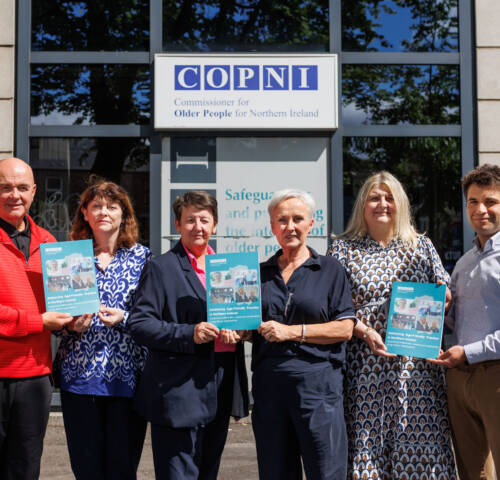Many older people may have questions following the decision of a High Court Judge to quash NI's continuing health care policy, on the grounds that it failed to properly assess the detrimental impact on older people. Below is a simple summary of what this means.
What is continuing healthcare?
Continuing healthcare is a policy which assesses whether a person’s needs are primarily healthcare related or social care related. The assessment will decide whether a person is required to make a contribution to their cost of care.
What is the difference between healthcare and social care?
A healthcare need is something which traditionally could have only been managed in hospital. For example, the treatment, control or prevention of a disease, illness, injury or disability.
Social care is focused on providing assistance with the activities of daily living.
In more simple terms, healthcare involves the treatment of a certain medical condition, while social care is more about offering people the support to cope with their conditions.
What is the purpose of Continuing healthcare?
The purpose of the policy is to ensure that people with acute clinical needs, no matter their age or where they reside, receives free healthcare.
Healthcare is required by law to be provided free of charge.
This means that the most acutely ill people in society should not contribute to their care home costs if their care needs are assessed as being primarily healthcare needs as opposed to social care needs.
Why did the Commissioner take a Judicial Review about continuing healthcare?
COPNI wanted the court to examine the impact and delivery of two continuing healthcare policies, the one which came into effect in February 2021 and its predecessor which was established in 2010.
What was the Commissioner’s concern with the 2010 policy?
COPNI received complaints from 40 older people who experienced issues in relation to continuing healthcare assessments under this policy. Many of the complaints and issues we heard were that people felt they weren’t being properly assessed, some were told there was no policy and the criteria and threshold for when a person should pay for their care was so unclear and operated differently between each health trust.
One of the older people who contacted us was Robin McMinnis. Robin is quadriplegic, living with multiple sclerosis and is paralysed from the neck down, and has serious complex, clinical needs. However, Robin was denied continuing healthcare under the 2010 policy. The Commissioner believed Robin’s case provided the opportunity to challenge the reasonableness of the policy, as well as the trust’s decision to refuse him continuing healthcare. And so the Commissioner agreed to represent him.
What was the Commissioner’s concern with the 2021 policy?
In February 2021 the Department of Health then changed the policy by introducing a ‘single criteria question’.
This change meant that anybody applying for continuing healthcare would be assessed by answering the single eligibility criteria question of:
‘Can your care needs be met properly in any other setting other than a hospital?’
If you answered yes, then you would not be eligible for continuing healthcare. This means those with acute clinical needs (with assets worth more than £23,250) would need to pay for their own healthcare outside of a hospital setting. The Commissioner argued that this new policy essentially eradicated any chance of a person with serious clinical needs being able to receive continuing healthcare funding in the future because the type of care that care homes can now provide has advanced and many are able to deliver and manage clinical healthcare needs.
What did the High Court find?
2010 policy:
The Judge determined that Mr McMinnis’ application for continuing healthcare was “procedurally unfair” when it was refused by the Belfast Health and Social Care Trust. The failure of the Department of Health to provide guidance on the application of the policy to the trust was also criticised. The Judge ruled that Mr McMinnis must be re-assessed using a lawful process and following guidance from the Department which he ruled must now be issued.
2021 policy:
The Judge also quashed the new 2021 policy “on the basis that it was adopted in breach of its obligation to have due regard to the need to promote equality of opportunity between persons of different age under section 75 of the Northern Ireland Act 1998” and that “the screening exercise undertaken did not begin to properly consider the true impact of the new policy on older people.”
So, if the policy has been quashed, how do I apply for continuing healthcare now?
The 2010 policy now applies pending the adoption of a new policy. The Judge has ruled that the Department of Health must urgently provide detailed guidance for this policy and put a lawful process in place so fairer assessments of an older person’s needs can be made.
I previously applied for CHC under the 2010 policy and was told I wasn’t eligible for continuing healthcare, is there any point in reapplying?
Considering the Judge found a lack of clarity and guidance in how the 2010 policy was delivered across the trusts, and new detailed guidance is to be put in place, many people may feel there is merit in applying for a new assessment.
If you have any concerns or questions in relation to continuing healthcare, please contact our legal and advocacy team on 028 9089 0892 or email info@copni.org




